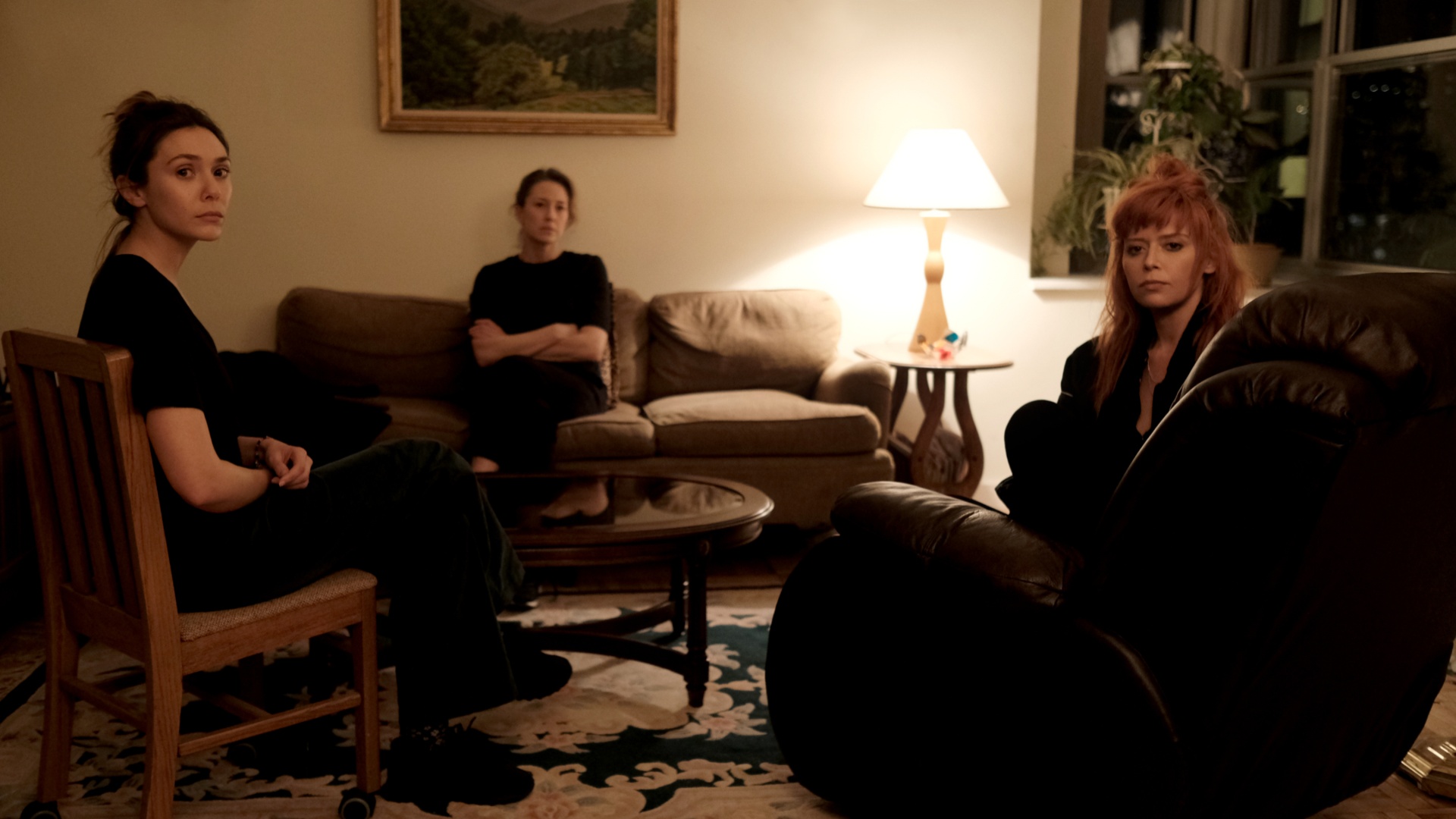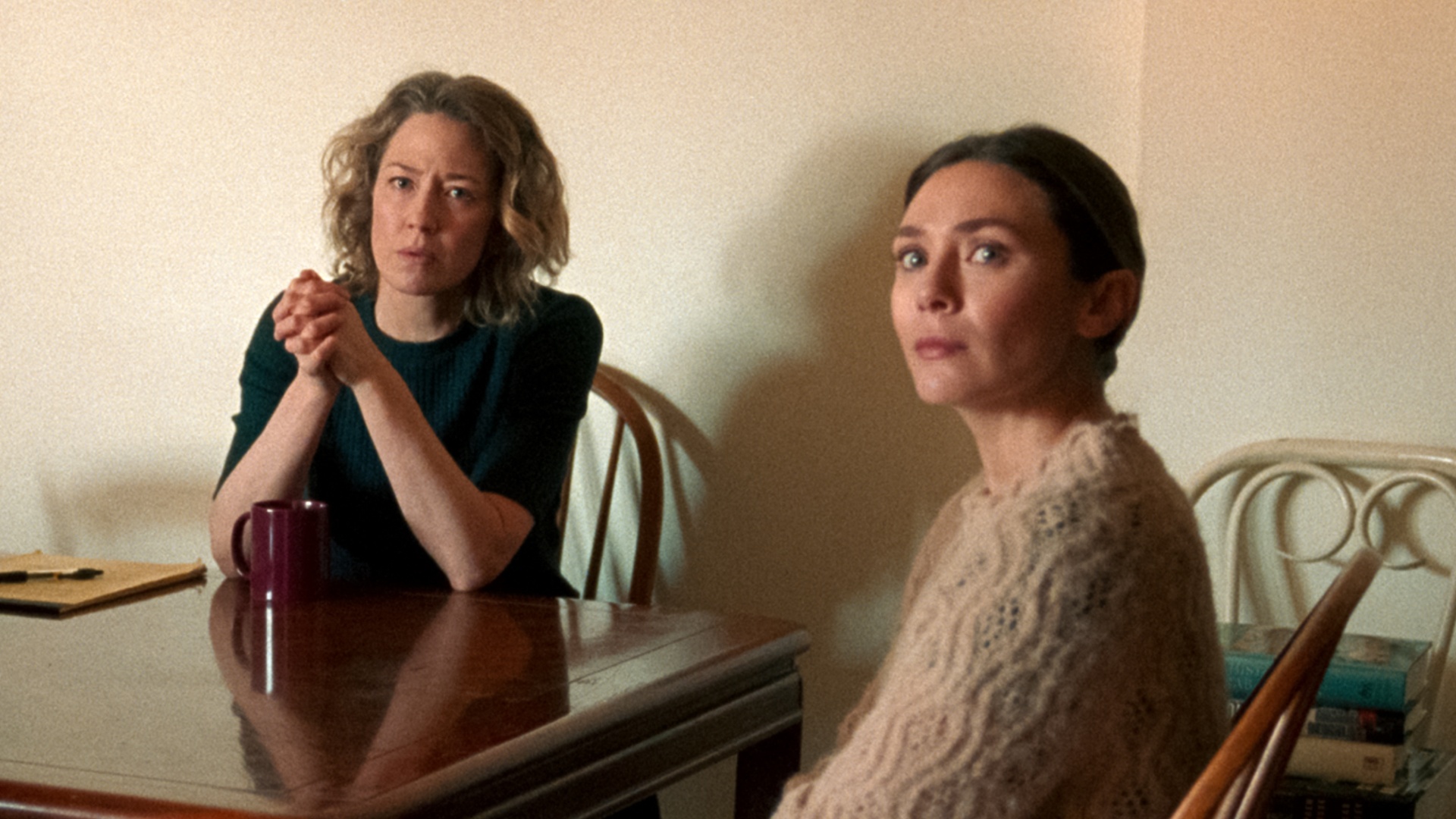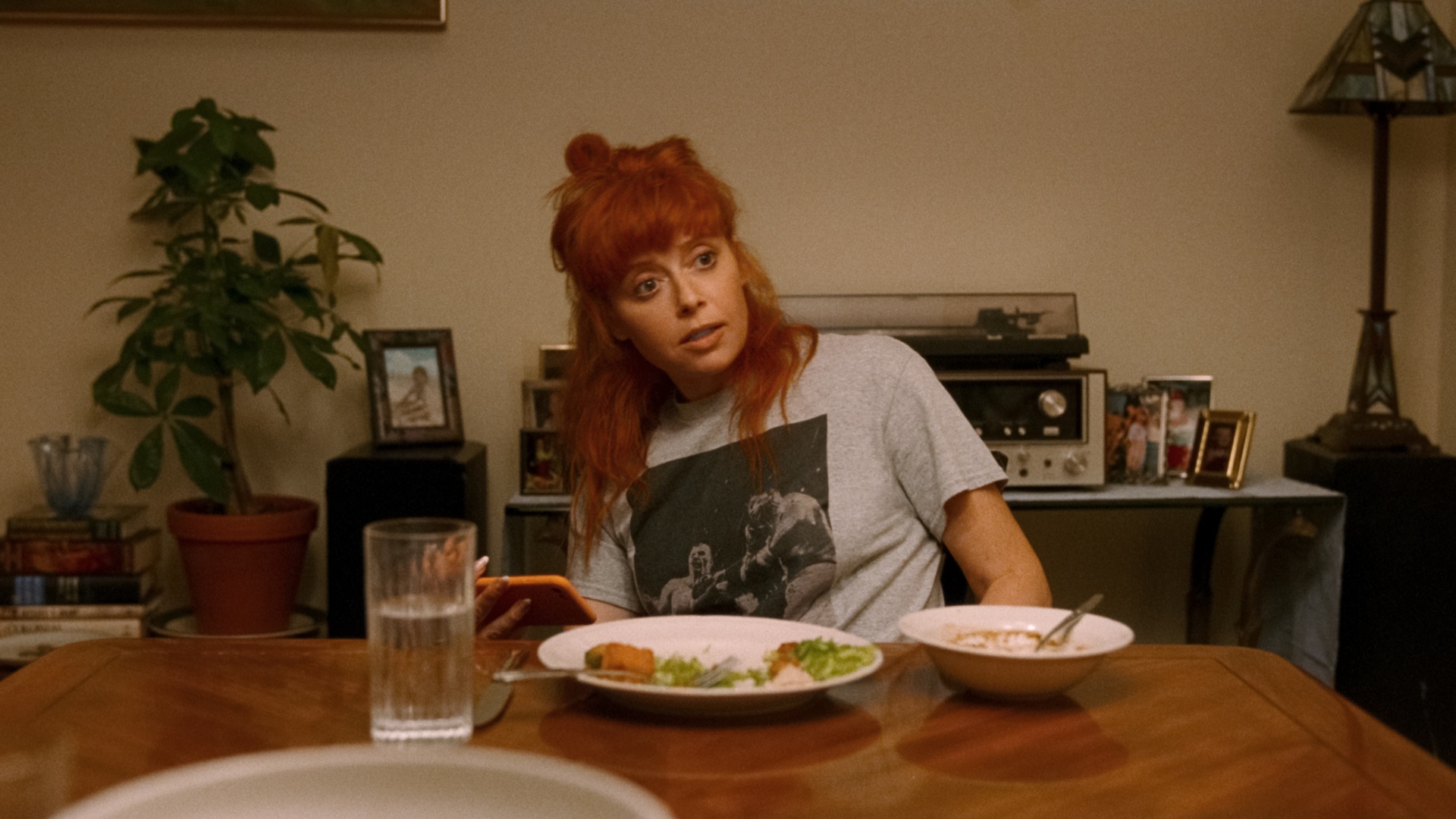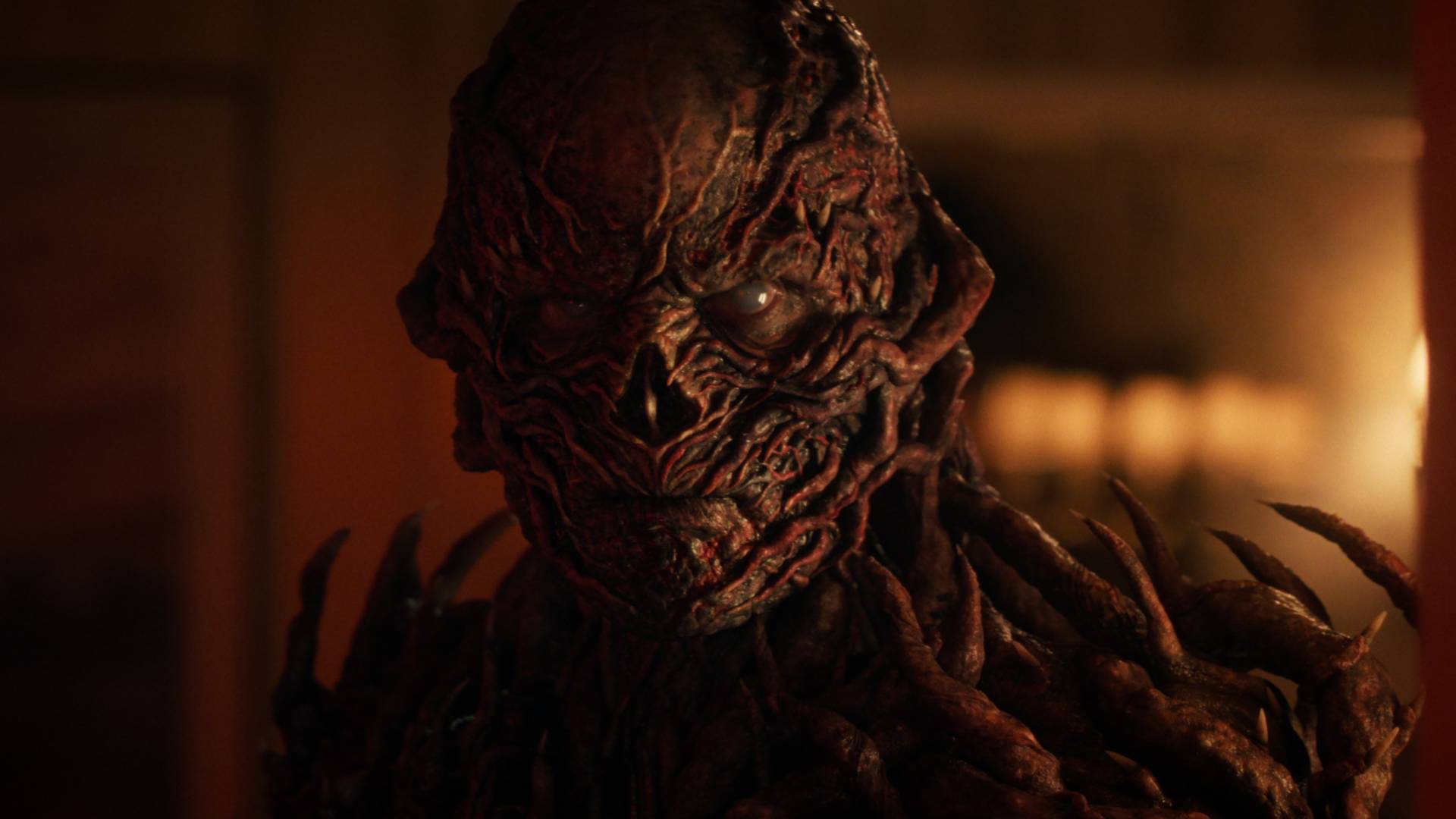One of the best Netflix movies of the year with a perfect Rotten Tomatoes score is a bittersweet exploration of grief
His Three Daughters shows why we find comfort in stories about grief

Grief is no stranger to the movies. In the last year alone, the death of a family member has been explored in everything from Julia Louis-Dreyfus' comedy-drama Tuesday to wrestling biopic The Iron Claw. But, like falling in (and out of) love, grief is one of those things that just doesn't get old on the silver screen. Like love, death affects everyone differently, but there are universal emotional truths that we never seem to get tired of watching.
In His Three Daughters, the latest film from writer-director Azazel Jacobs, three estranged sisters, played by Carrie Coon, Elizabeth Olsen, and Natasha Lyonne, reunite in their father's NYC apartment in the last days of his life. The trio grapples with their fractured sibling bonds as they try to organize hospice nurses, obituaries – and where it's appropriate for your sister to smoke weed is when your father is dying in the next room.
Waiting rooms

As the three women wait it out between the four walls of their father's home, we witness their journey through the unique sensation of 'pre-grief' – that period of limbo during a loved one's final days or weeks when it feels like you're mourning someone who's still alive. "It's a very specific kind of waiting," Coon tells GamesRadar+. "I think anyone who's been through it feels it in the film. And it was very important to [Jacobs] to capture that feeling of time and how it's passing – or not passing – rhythmically and how you're sort of hopeful for this thing to happen, and feeling guilty that you're hopeful. I think he really did a good job with that."
Olsen points out that the beeping of their father's medical monitor "kind of keeps a metronome." It "was important for [Jacobs] to feel like we get lost in time," she says. "You only know what time of day it is because of the meal that [they're] having and the timing of the nurses coming in and out, and those are the only guides for you to understand how to structure a day because it is this time warp."
With the film rarely leaving the confines of the apartment or the back-and-forths of the central trio, watching it feels a little like watching a play. For Jacobs, though, it was important to distinguish between the two mediums: these limitations are a feature rather than a bug. "I was trying to look at, like, how this wouldn't be a play, and how this couldn't be a play," he explains. "So part of that is the way that it's shot, and that it's isolating [the sisters] in frames, but also that the film doesn't move in real-time, which a play would. I felt like I needed time to move in these very shifting ways. I needed to isolate them as individuals in the way that only film could."
Generation game

Another isolating factor in the film is motherhood – both the absence and presence of it. The sisters have two different mothers, with their father remarrying Rachel's mother after the death of Katie and Christina's, but both of their father's wives are dead, only mentioned in passing, so their dad is all they have left.
On the flip side, Katie and Christina have their own daughters, elusive presences scattered like breadcrumbs through the script. Christina speaks often of her young daughter Mirabella, while we catch snippets of Katie's tense phone conversations with her family back home. For Jacobs, motherhood was a way of separating the sisters twofold – not only is Rachel the only one of them who has a different mother, she's the only sister without her own kids.
Bringing all the latest movie news, features, and reviews to your inbox
"It felt like [the sisters] came out pretty realized as I was writing and it felt like there was already a sense that Katie could be a mother, just by the approach that she has towards life," he explains. "And then because Christina is the one that's living the furthest away, it feels like she really, truly could have a whole other life going on, and that would include having a family, and then Rachel, because she lives at home, that's the one that we can see, 'Oh, there's no kid there,' and that's one more big difference between her and her other sisters."
Adding a third generation into the mix was also vital for making the film more honest, says Coon. "I think it makes the movie relatable, because there seems to be a very large segment of the population who's dealing with the death of their parents while they're raising their children," she tells us. "Maybe it's because we're having kids later, or something. People are really being struck by the movie because of that very particular challenge when you're straddling two generations, and they both require all of your attention, and so everything's getting short shrift. I think we're all moving through the world that way."
As a no-frills character drama, then, His Three Daughters is a frank portrayal of a disjointed family coming to terms with the impending loss of their only unifying factor. Katie, Christina, and Rachel's isolation is only intensified by their close proximity and confinement under one roof –.as the three sisters try to relate to each other, all three of them are just trying to be seen in their own right. Grief is lonely and claustrophobic all at once, which is why stories about death never seem to get old. We may have seen the act of mourning on screen countless times before but, in recognition, we can find comfort in a familiar pain.
His Three Daughters is out now in select theaters before arriving on Netflix on September 20. In the meantime, check out our picks of the other best Netflix movies to fill out your watchlist.
I’m an Entertainment Writer here at GamesRadar+, covering everything film and TV-related across the Total Film and SFX sections. I help bring you all the latest news and also the occasional feature too. I’ve previously written for publications like HuffPost and i-D after getting my NCTJ Diploma in Multimedia Journalism.


